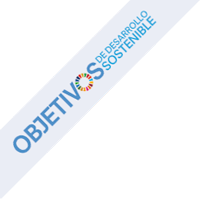- Authors:
Sandra Racionero-Plaza, Pilar Castro-González, Michela Accerenzi y María Alejandra Mercenaro
Publication:
Fundación ETEA para el Desarrollo y la Cooperación
Year: 2022
Abstract
The project “Prevention of gender-based violence and promotion of safe environments and healthy coexistence in 11 schools in Nicaragua”, funded by the Andalusian Agency for International Development Cooperation (AACID), has ultimately aimed to contribute to the improvement of the quality of educational and social processes through the promotion of safe environments in educational contexts in Nicaragua. In particular, the project’s specific objective was to contribute to the prevention of gender-based violence and promote a safer school environment in 11 schools of the Fe y Alegría Network in Nicaragua.
One of the methodologies implemented to achieve this objective was the Dialogic Model of Conflict Prevention and Resolution applied to the prevention of gender-based violence, which was implemented in six schools of the Fe y Alegría Network. The application of the methodology involved:
- Providing students with tools based on scientific knowledge to better analyse human relationships, differentiate affective-sexual relationships that are violent from those that are not, and learn about their different personal and social impact.
- Improve the ability of students and teachers to overcome myths and hoaxes about gender violence and apply this ability to their educational actions.
- Training teachers and students in the scientific evidence on violent affective-sexual relationships and how to overcome them.
To achieve these goals, we have worked in the same way as we do in the health sciences. We have used what has already been shown to produce excellent results in other places where it has been applied. Moreover, these results are already published in the world’s leading scientific journals (indexed in the Journal Citation Reports of Web of Science and Scopus), many of which are open access and can be consulted by any citizen with internet access. Some of these scientific articles are listed at the end of this guide.
The intervention that the international scientific community has proven to achieve excellent results in preventing gender-based violence is the dialogic model of conflict prevention and resolution, based on the line of research in preventive socialisation of gender-based violence developed by the Community of Researchers on Excellence for All (CREA), of the University of Barcelona, and endorsed by the European Commission in its Research Framework Programmes. This model is a Successful Educational Action that has been applied for years in schools in a variety of countries, both in Europe and Latin America, in different cultural, linguistic, ethnic and socio-economic contexts, producing excellent results in the preventive socialisation of gender-based violence in all cases. This evidence-based approach, rather than ever testing on boys and girls anywhere, meets the highest ethical standards required of world-class scientific research.


